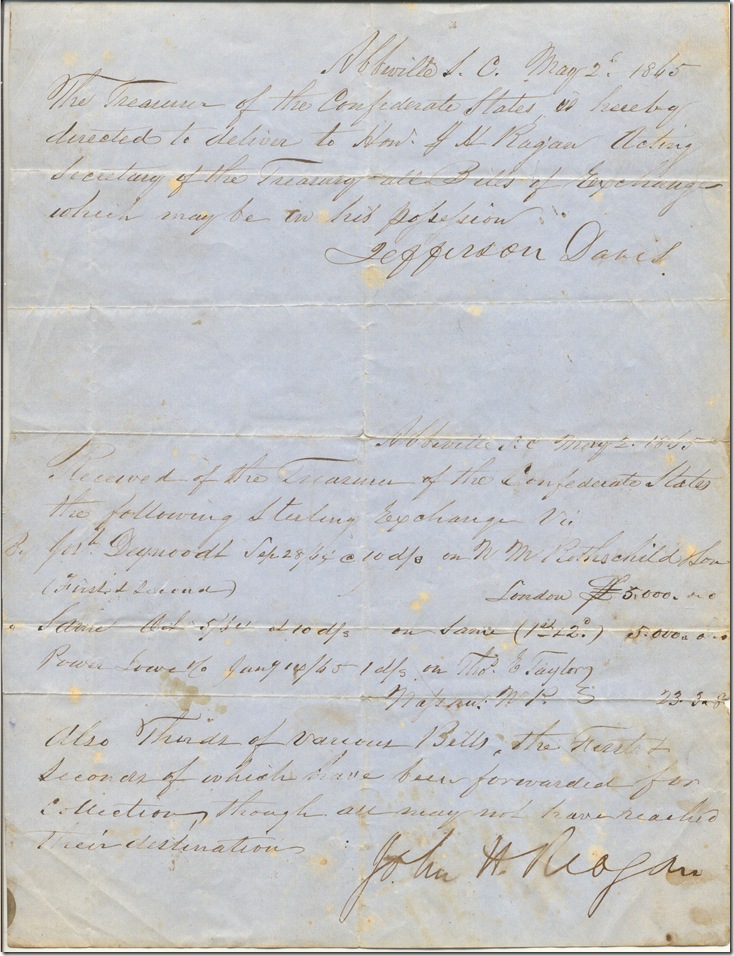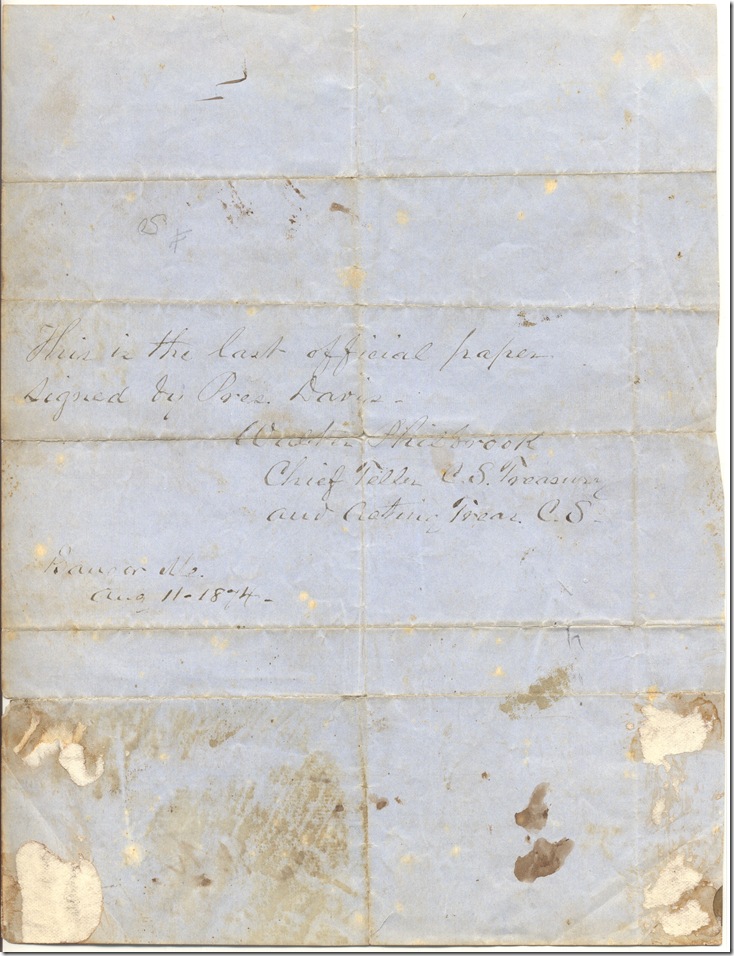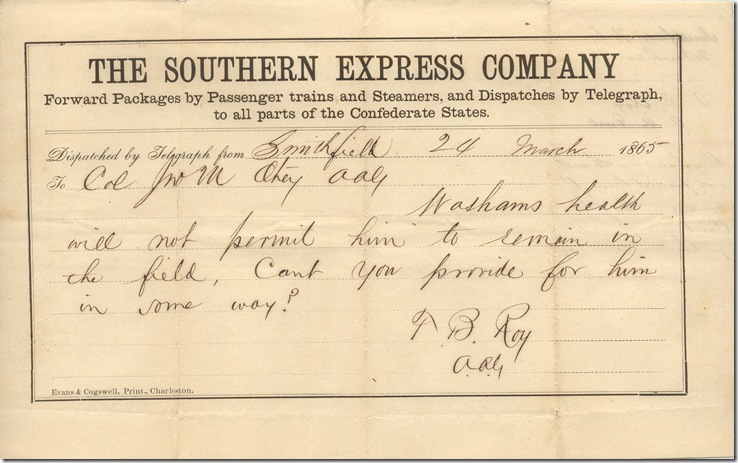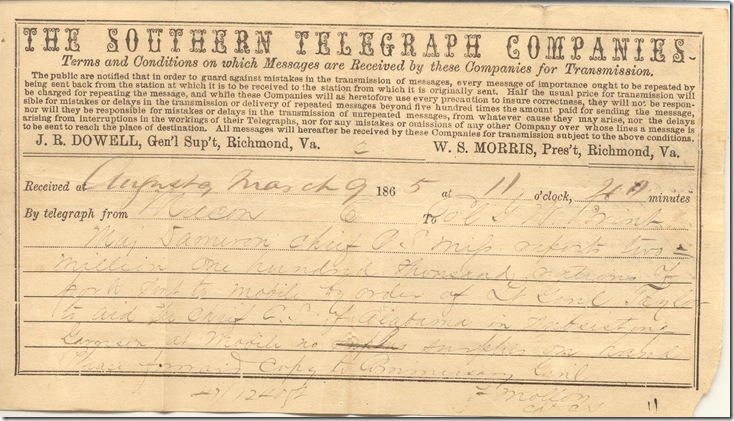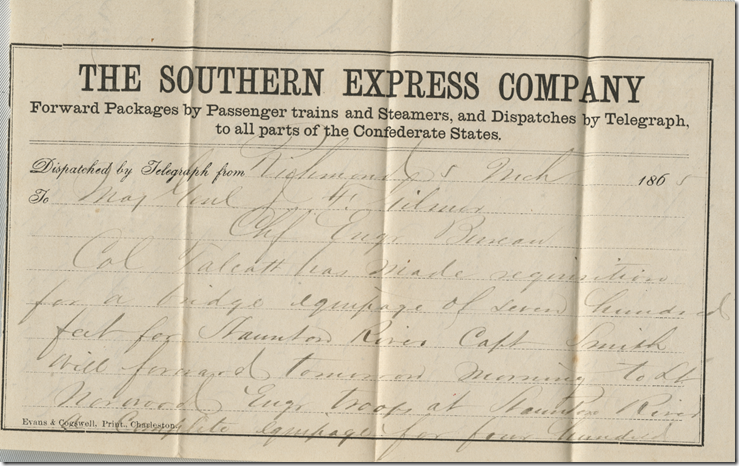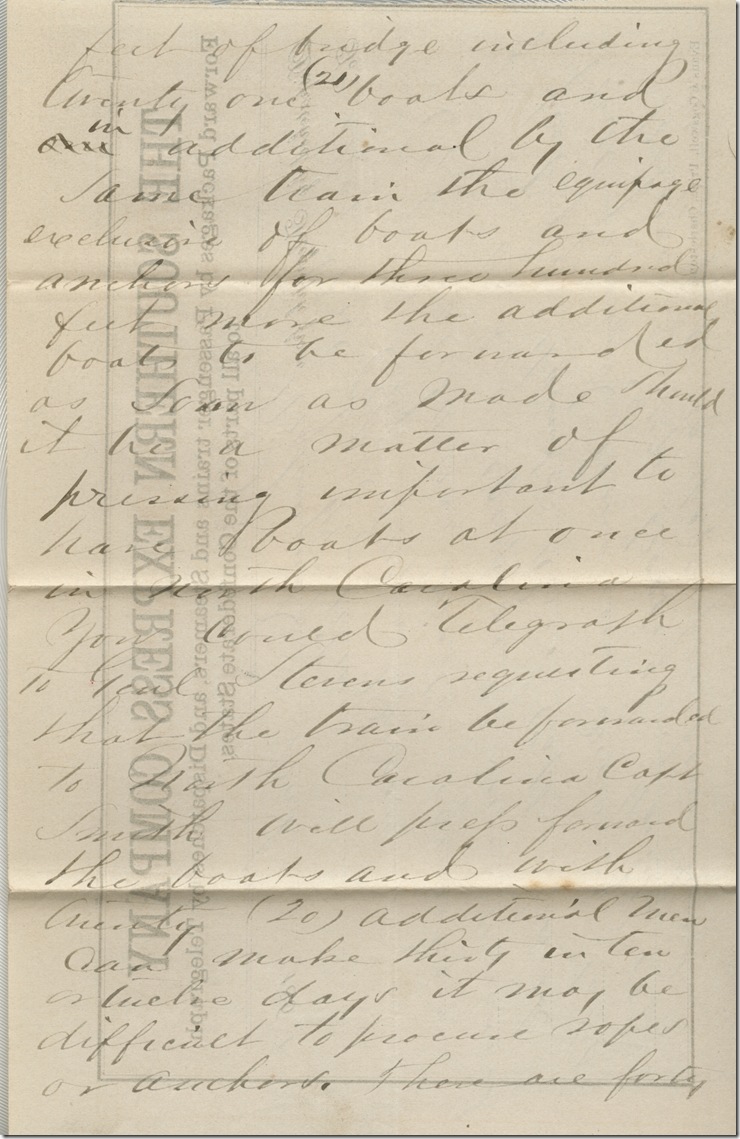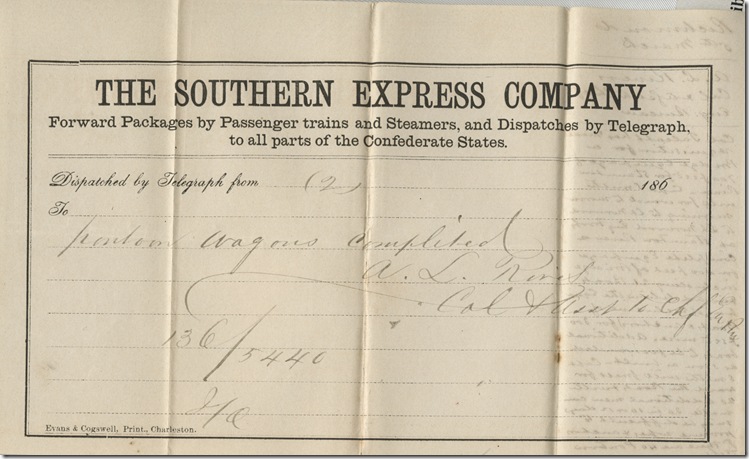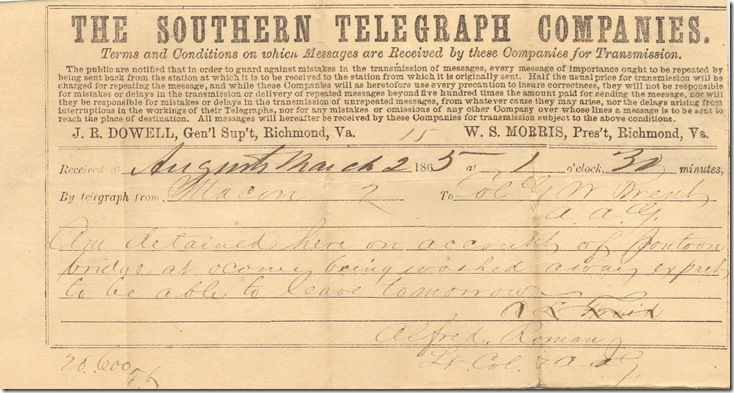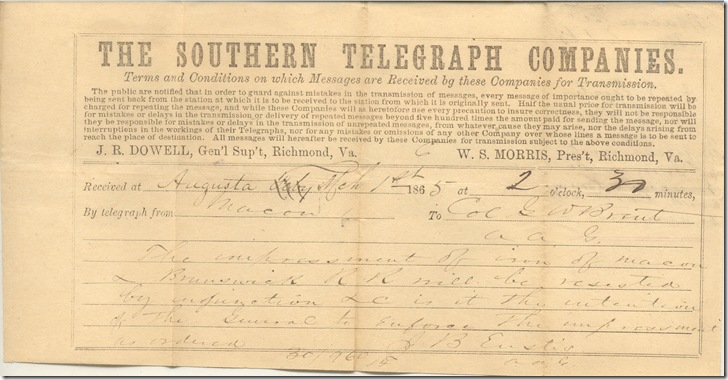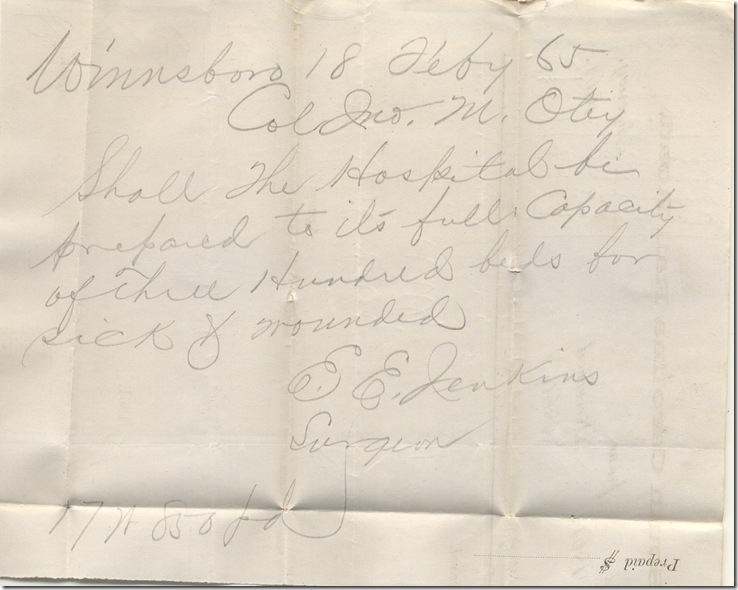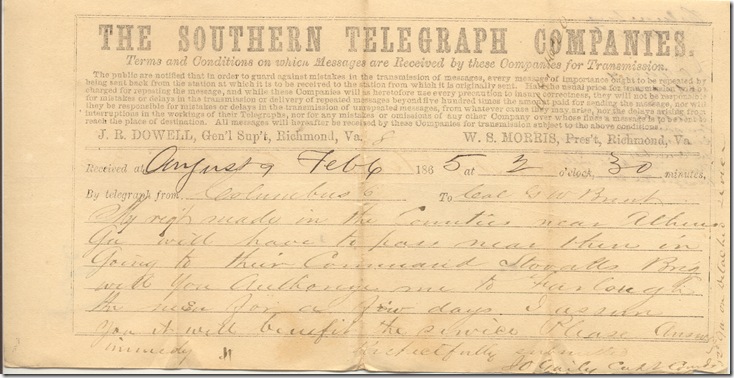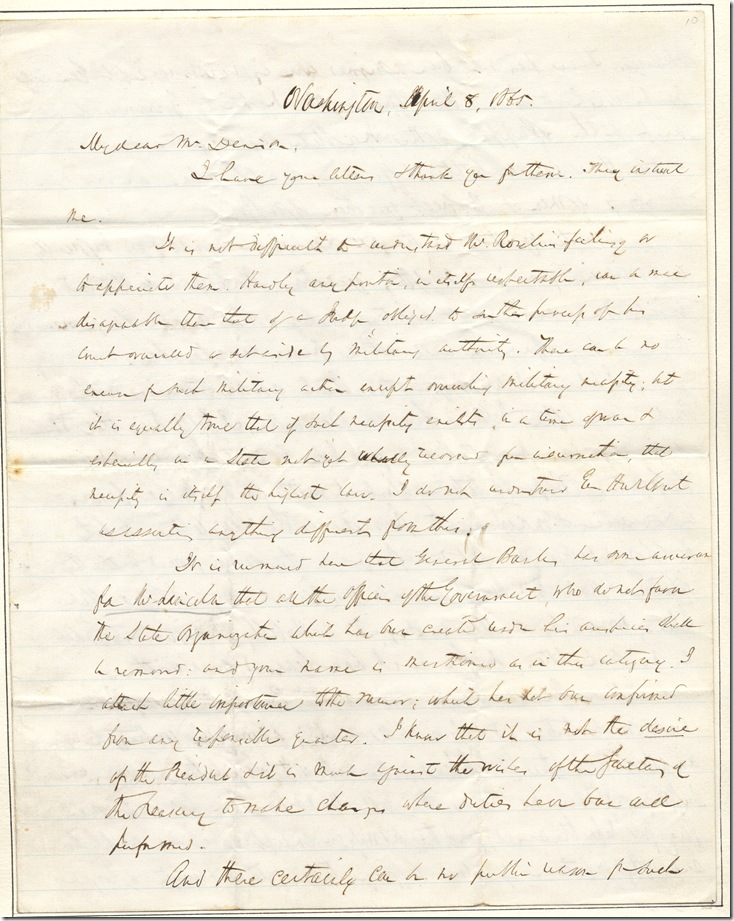
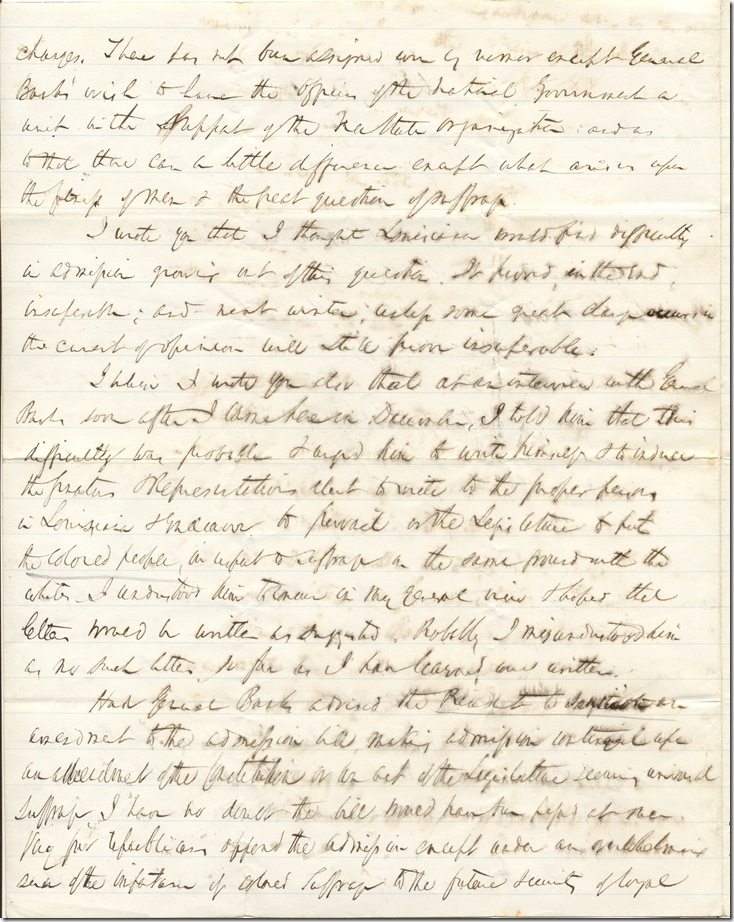
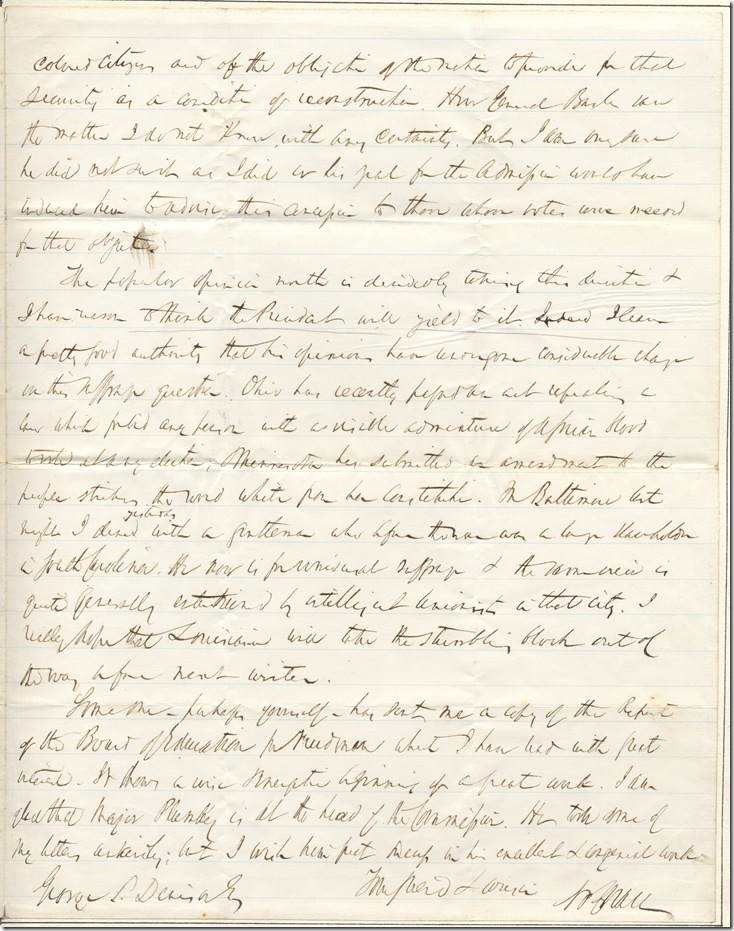
Transcript:
Washington, April 8 1865
My dear Mr. Denison,
I have your letters & thank you for them. They interest me.
It is not difficult to understand Mr. Roskins failing or to appreciate them. Hardly any position, in itself unacceptable, can be more disprovable than that of a Judge obliged to process of his court overruled or set aside by military authority. There can be no excuse for such military action except overruling military necessity; but it is equally true that if such necessity exist in a time of war & especially in a State not yet cleared from insurrection, that necessity is itself the highest law. I do not understand Gen. Hurlbuts assertion anything different from this.
It is rumored here that General Banks has some answer for Mr. Lincoln that all the officers of the Government, who do not form the State Organization which has been created under his auspices shall be removed: and your name is mentioned in this category. I attach little importance to the rumor, which has not been confirmed from any responsible quarter. I know that it is not the desire of the President & it is much against the wishes of the Secretary of the Treasury to make changes where duties have been well performed.
And there certainly can be no public answer to such charges. That has not been affirmed even by rumor except General Banks’ wish to have the officers of the national Government a unit in the support of the National Organization; and as to that there can be little difference except what [arises?] upon the fitness of men & the great question of suffrage.
I wrote you that I thought Louisiana would find difficulty in admission growing out of this question. It found in the law insuferable; and next winter, unless some great change occurs in the current of opinion will still find insuferable.
I believe I wrote you about that at an interview with General Banks soon after I came here in December. I told him that this difficulty was probable & urged him to write himself & to induce the Senators& Representatives elect to write to the proper people in Louisiana & endeavor to prevail on the Legislature to put the colored people, in respect to suffrage on the same ground with the whites. I understood him to share in my general view & hoped that letter would be written as suggested. Probably I misunderstood him as no such letter so far as I have learned was written.
Had General Banks advised the [illeg.] an amendment to the admission bill, making admission dependent entirely an amendment of the Constitution or an act of the Legislature seeking universal suffrage, I have no doubt the bill would have been passed at once. The [poor?] republicans oppose the admission except under an overt statement of the importance of colored suffrage to the future security of loyal colored citizens and of the obligation of the nation to provide for the security as a condition of reconstruction. How General Banks saw the matter I dont know with any certainty. But I am only sure he did not do it as I did or his zeal for the Admission would have induced him to admit this [illeg.] to them when votes were needed for that object.
The popular opinion north is decidedly taking this direction & I have reason to think the President will yield to it. Indeed I hear a pretty good authority that his opinion has brought on considerable change on this suffrage question. Ohio has recently passed an act repealing a law which forbid any person with a visible admixture of African blood to [illeg.] [above duties?]. Minnesota has submitted an amendment to the peoples striking the word white from the Constitution. In Baltimore last night I dined with a gentleman who before the war was a large slaveholder in South Carolina. He now is for provisional suffrage & the same view is quite personally entertained by intelligent Unionists in that city. I really hope that Louisiana will take the stumbling block out of the way before next winter.
Some one—perhaps yourself—has sent me a copy of the Report of the Board of Education of Freedmen which I have read with great interest. It shows a [illeg.] beginning of a great work. I am glad that Major Plunkey is at the head of the Convention. He took some of my letters [illeg.]; but I wish him great success in his excellent & commendable work.
Your friend
SP Chase
Citation: Salmon P Chase, autograph letter signed to George P. Denison. Washington, D.C., 8 April 1865. AMs 527/8.3
